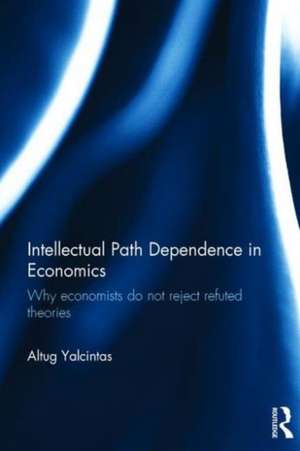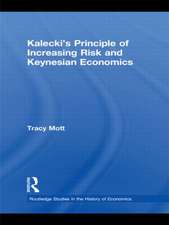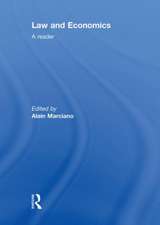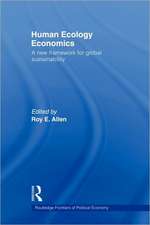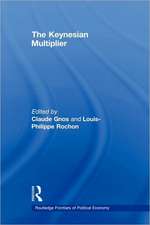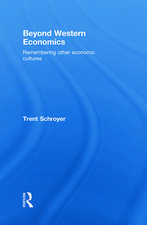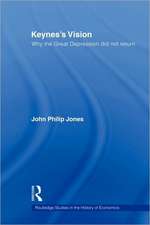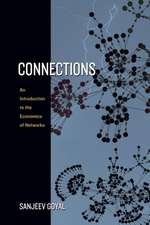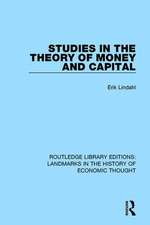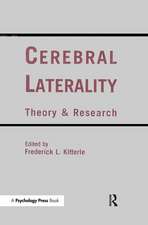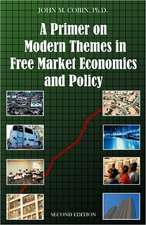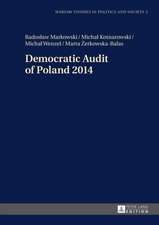Intellectual Path Dependence in Economics: Why economists do not reject refuted theories
Autor Altug Yalcintasen Limba Engleză Hardback – 21 mar 2016
A key question which often gets little or no attention is: why do economists not reject theories when they have been refuted by evidence and falsified by philosophical reasoning? This book explores the answer to this question by examining the phenomenon of intellectual path dependence in the history of economic thought. It argues that the key reason why economists do not reject refuted theories is the epistemic costs of starting to use new theories. Epistemic costs are primarily the costs of scarcity of the most valued element in academic production: time. Epistemic scarcity overwhelmingly dominates the evolution of scientific research in such a way that when researchers start off a new research project, they allocate time between replicable and un-replicable research.
This book is essential reading for anyone interested in the methodology, philosophy and history of economics.
| Toate formatele și edițiile | Preț | Express |
|---|---|---|
| Paperback (1) | 308.91 lei 6-8 săpt. | |
| Taylor & Francis – 22 ian 2018 | 308.91 lei 6-8 săpt. | |
| Hardback (1) | 819.09 lei 6-8 săpt. | |
| Taylor & Francis – 21 mar 2016 | 819.09 lei 6-8 săpt. |
Preț: 819.09 lei
Preț vechi: 1102.30 lei
-26% Nou
Puncte Express: 1229
Preț estimativ în valută:
156.73€ • 164.08$ • 129.69£
156.73€ • 164.08$ • 129.69£
Carte tipărită la comandă
Livrare economică 05-19 aprilie
Preluare comenzi: 021 569.72.76
Specificații
ISBN-13: 9781138016170
ISBN-10: 1138016179
Pagini: 188
Ilustrații: 11
Dimensiuni: 156 x 234 x 17 mm
Greutate: 0.41 kg
Ediția:1
Editura: Taylor & Francis
Colecția Routledge
Locul publicării:Oxford, United Kingdom
ISBN-10: 1138016179
Pagini: 188
Ilustrații: 11
Dimensiuni: 156 x 234 x 17 mm
Greutate: 0.41 kg
Ediția:1
Editura: Taylor & Francis
Colecția Routledge
Locul publicării:Oxford, United Kingdom
Public țintă
Postgraduate and UndergraduateCuprins
Part I. Epistemic Responsibility of Economists 1. Matters of Opinion or Questionable Research Practices? Part II. The Economic Construction of Sciences 2. Explaining Epistemic Hystereses 3. Sciences between Scylla and Charybdis 4. Error: A Common Tragedy in Sciences Part III. Concluding Remarks 5. Economics as Part of a System of Research Ethics
Notă biografică
Altug Yalcintas is an historian and philosopher of economics. He is an Associate Professor at the Economics Department of Ankara University, Turkey.
Recenzii
"[This book] is an opportune and balanced contribution to the innumerable question marks being raised these days about the malfunctioning of orthodox economic theorizing." - Valentin Cojanu, Journal of Philosophical Economics
Descriere
Is economics always self-corrective? Do erroneous theorems permanently disappear from the market of economic ideas? Intellectual Path Dependence in Economics argues that errors in economics are not always corrected. Although economists are often critical and open-minded, unfit explanations are nonetheless able to reproduce themselves. The problem is that theorems sometimes survive the intellectual challenges in the market of economic ideas even when they are falsified or invalidated by criticism and an abundance of counter-evidence.
